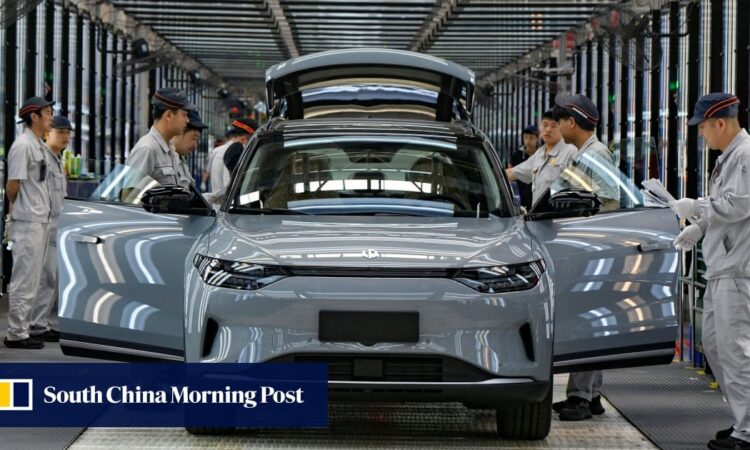
Under World Trade Organization rules, China should impose a “higher provisional tariff” of up to 25 per cent on large petrol-powered vehicles from Europe, the post added.
The firms alleged that the EU had “abused its investigation power to arbitrarily expand the scope of investigation and even snoop into China’s new energy vehicle technology”.
It is better to say that this is a big survey of the core competitiveness of China’s new energy vehicle companies
“Chinese companies have reported that the EU asked them to provide battery formulas during its anti-subsidy investigation,” it added.
The European Commission, the EU’s executive arm, demanded that parties turn over “core business secrets”, including production capacity projections for the next five years, factory output, lists of fixed assets and any plans to increase production capacity, according to Yuyuantantian’s social media post.
It said investigators also wanted information on parts and raw materials – including names of providers – labour costs, equipment depreciations, pricing strategies, sales terms and the contact information of customers in the EU.
Shareholder meeting minutes, copies of joint-venture agreements and financial details were also demanded, the report said.
“Rather than saying that this is an anti-subsidy investigation, it is better to say that this is a big survey of the core competitiveness of China’s new energy vehicle companies,” it said.
At the meeting, Chinese and European car companies “all opposed” the EU’s tariffs, the post added.
With the idea of a 25 per cent tariff on certain large European cars having already been floated, Chinese officials also called the tariffs “protectionism”.
As of Thursday afternoon, the EU’s office in Hong Kong had not answered a request for comment on the closed-door EV meeting.
Beijing sees EVs, lithium-ion batteries and solar panels as its “new three” sectors to lift exports and spur economic growth.
China’s EV battery exports rose by 70 per cent in 2023 to US$34.1 billion, according to the US-based Atlantic Council think tank.
China’s state-run Global Times, meanwhile, reported that Chinese battery maker CATL is planning to build a second plant in Hungary valued at US$8.2 billion.
The European Federation for Transport and Environment said worldwide sales attained a market share of 14.6 per cent in 2023 on 1.5 million vehicles.
Separately, a report released on Wednesday by the China Chamber of Commerce to the EU and data provider China Economic Information Service said 82 per cent of surveyed Chinese firms had lost confidence in investing in Europe due to the EU anti-subsidy probe, while 73 per cent noted a negative impact on European sales.
The report on the development of Chinese EV manufacturers in Europe surveyed 30 EV firms and other institutions in April and May. The EU had launched its investigation in October.
Tariffs would “significantly increase costs and complicate business operations, undermining the EU’s efforts to create a favourable green economic environment”, the report said.
It urged Chinese and European carmakers to “work together more closely to expand the EV market and contribute to the global green economy transition”.

.jpg)





